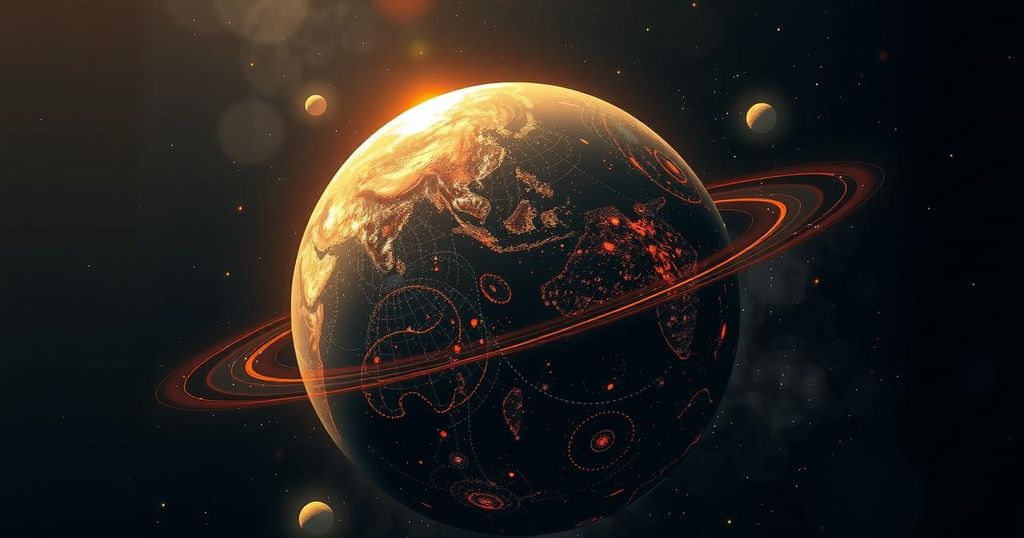Mahdi, Tawid, And A Hot Hot Planet – OpEd

The article discusses the alarming imbalance in the global water cycle due to climate change and poor management, which threatens food production and economies. It outlines the political commitment to rollback environmental regulations and the rising global temperatures, as well as the imminent threat posed by melting glaciers. The article highlights the importance of stewardship as emphasized by religious teachings within Judaism and Islam, suggesting a collaborative approach is essential to achieve peace and sustainability.
Humanity is currently facing an unprecedented imbalance in the global water cycle, a situation described as a growing water disaster that threatens economies, food production, and lives. According to a report by the Global Commission on the Economics of Water, destructive land use combined with climate change is placing “unprecedented stress” on the water cycle. This crisis is projected to threaten over 50% of global food production and could reduce GDPs by an average of 8% by 2050, with some low-income countries likely to experience losses nearing 15%. The political landscape surrounding climate action is also shifting as ex-president Donald Trump has pledged to dismantle the Biden administration’s environmental policies, advocating for increased fossil fuel production and the repeal of key climate regulations established during the previous administration. Notably, the summer of 2024 recorded historically high temperatures, with cities like Phoenix experiencing extreme heat for an extended number of days. Alarming scientific findings have emerged concerning the Thwaites Glacier in Antarctica, which is melting rapidly, posing a severe risk for global sea levels. The glacier has the potential to contribute significantly to rising water levels, with projections suggesting a rise of 8-10 feet which would devastate numerous coastal communities. As these climate challenges grow, the world is also witnessing a decline in democratic governance, with a notable increase in closed autocracies. Currently, 72 percent of the global population lives under authoritarian regimes, marking a troubling regression in democratic freedoms. Both Jewish and Islamic traditions emphasize stewardship of the Earth and the collective responsibility of humanity to combat climate change. Each tradition contains prophetic elements pertaining to a transformative future; for instance, the Mahdi in Islam and the Jewish Messiah are seen as figures who will lead humanity towards a peaceful existence. Discussions surrounding the prophesied figures of the Mahdi and the Messiah highlight the importance of human action in realizing a peaceful and just future. While unfulfilled prophecies may suggest a climatic upheaval as a precursor for change, the collaborative efforts and moral responsibilities dictated by religious teachings are emphasized as essential for attaining a better world. Ultimately, significant transformations depend on the willingness of individuals and communities to fulfill their divine responsibilities to care for the planet and each other. In conclusion, as humanity grapples with the realities of climate change, socio-political challenges, and prophetic narratives, it becomes evident that the path towards a peaceful existence is intertwined with collective action and stewardship. There exists an urgent need for cooperation and commitment across all societies to not only address the ongoing environmental crisis but also to pave the way for a hopeful, just future for all.
The article explores the growing concerns surrounding the global water crisis worsened by climate change and poor management. It highlights significant findings from a recent report indicating the potential economic impacts of this crisis, particularly on food production and GDP. The political dynamics related to environmental policies under the current and former U.S. administrations are examined, as well as the implications of the climate emergency on global governance structures. Additionally, the article delves into religious perspectives, particularly from Judaism and Islam, regarding the roles of messianic figures in bringing about an ideal future, emphasizing the shared responsibility among people of faith to care for the Earth and work towards peace and justice.
The article illustrates the urgent need for action in the face of climate change, emphasizing the interconnectedness of global crises and the transformative potential of prophetic teachings. As humanity navigates unprecedented environmental and political challenges, the call for stewardship and cooperation is paramount. Engaging in responsible actions to protect the planet is not only a moral obligation but also a necessary step towards achieving a peaceful future.
Original Source: www.eurasiareview.com








